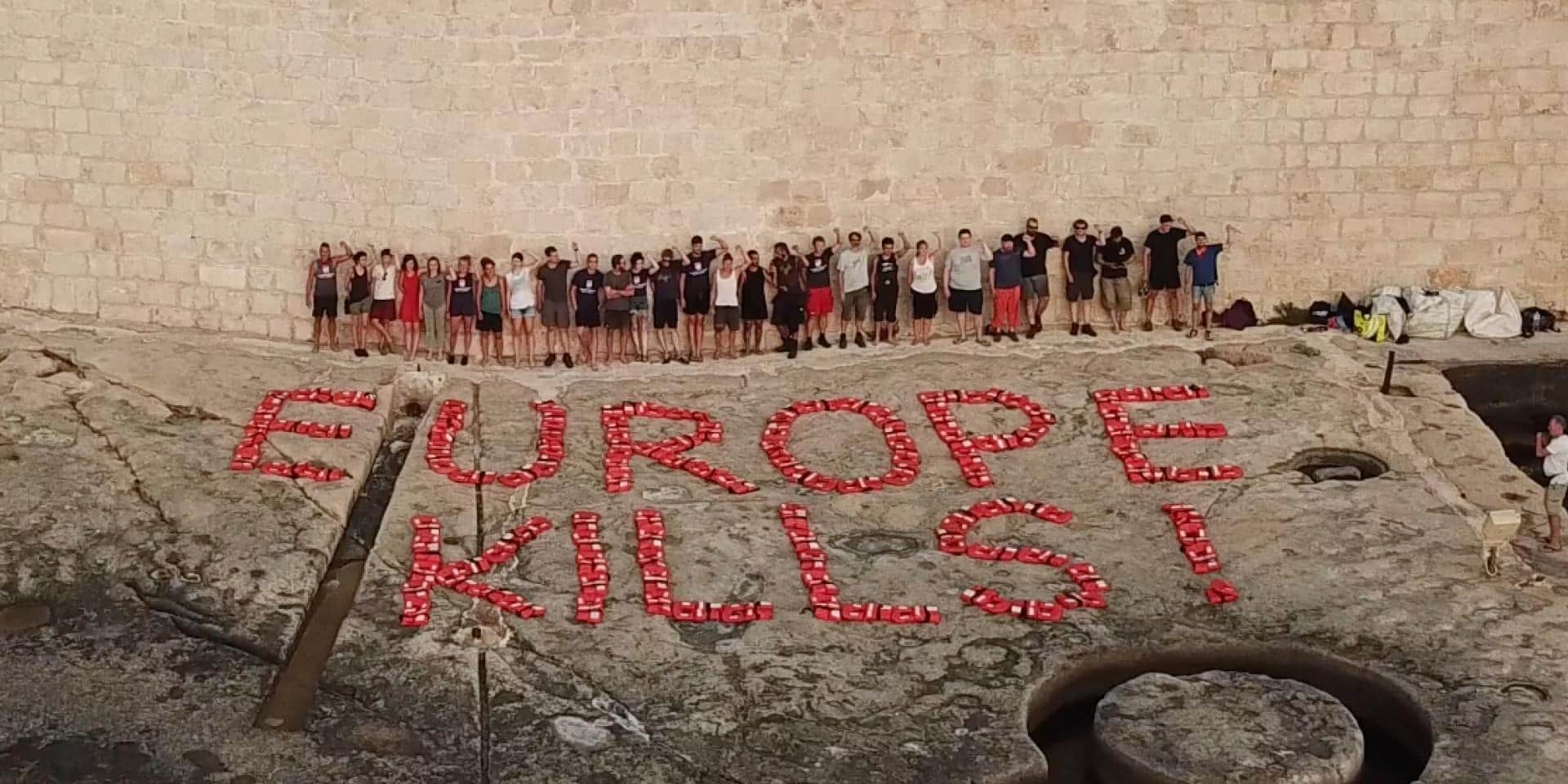The European border agency Frontex is celebrating its 20th anniversary this year. The civil sea rescue organization Sea-Watch draws a sobering balance: Since its foundation, Frontex – financed by EU billions – has developed into a central player in sealing off Europe and criminalizing flight and migration – at the cost of human lives.
Sea-Watch also criticizes Frontex for its lack of transparency and repeated human rights violations. Usually, the agency does not inform civil rescue organizations or merchant ships about boats in distress in their vicinity. Through its repeatedly proven cooperation with the militias of the so-called Libyan Coast Guard, Frontex plays a crucial role in intercepting and returning refugees to torture, arbitrary detention, and slavery. While Frontex’s involvement in human rights violations is well documented, there are no consequences.
“For two decades, the EU has been investing billions in an organization that operates with impunity and without transparency, like a secret service, and is particularly notable for its human rights violations. Instead of offering those seeking protection legal and safe routes, the borders are being turned into a human rights-free space and the Mediterranean into a mass grave,” says Bérénice Gaudin, Sea-Watch Advocacy.
Sea-Watch has documented several cases of Frontex’s involvement in human rights violations in the Central Mediterranean from the air in 2022-2024 and published them in a report that can be found here. In April 2022, Sea-Watch also filed a lawsuit for the release of information proving Frontex’s involvement in human rights violations. Frontex had previously refused all requests under the Freedom of Information Regulation. However, in a ruling on April 24 this year, the General Court of the European Union in Luxembourg failed to establish transparency and accountability.
While Frontex invests billions in military and technical armaments, the rescue of human lives in the Mediterranean is left to civil society organizations. “Instead of continuing to invest in militarizing the external borders, the focus must be on human rights and establishing a state-run, civilian sea rescue program. No one has to die fleeing across the sea,” says Gaudin.











